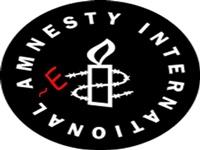Children's rights receive primary attention in Amnesty report

Violations of Irish children’s rights received primary attention during the launch of Amnesty International’s 2010 report on the state of international human rights. By Sarah Hale.
Members of Amnesty International Ireland stressed government accountability for children’s rights during the launch of organization’s 2010 annual report Thursday. Operating under the slogan “No one is above the law”, the group called attention to government failures in upholding international human rights, particularly for children, women and mental health patients.
Colm O’Gorman, Executive Director of Amnesty International Ireland, cited varying figures for the number of children who have died under state care as a failure of transparency and accountability.
“Governments must not continue to believe or act as if they are above the law,” he said. “The purpose of government is not to be reactive to public out rage or pressure, but to provide for the people.”
Echoing a series of public officials, O’Gorman expressed disgust at the state’s lack of certainty about children who have absconded from state care. He suggested that some of the 419 children who went missing between 2000 and 2009 “may have found themselves victims of trafficking”.
O’Gorman also denounced the custodial detention of 155 underage mental health patients in adult wards in 2009, quoting it as “counter-therapeutic”.
Emily O’Reilly, Ombudsman and Information Commissioner, identified sub-par accountability practices in many of Ireland’s institutions. Though she mentioned the importance of public responsibility for public institutions, she suggested that Ireland's institutions operated during the past several years with the “ethical élan of a dodgy bookie”. O’Reilly went on to describe the HSE as defined by an excess of legalism, which impedes citizen’s access to law.
O’Reilly also said that accountability depends upon culture. “Proper regulation … can flourish only when the environment supports it,” she said.
In addition to children’s rights, the 2010 report covered violations of women’s rights and trafficked persons in Ireland.
Domestic violence, a focus in the 2008 report, was not mentioned in 2010. This is despite recent findings that as many as one in five Irish women have experienced domestic abuse. A Rape Crisis Network review of the criminal justice system found that only 30 percent of rape cases reported to police led to prosecutions. The most common reason cited by victims who considered withdrawing their complaints was “poor treatment by police,” according to the 2010 report.
The Amnesty report also included a finding by the Immigrant Council of Ireland that at least 102 women and girls were trafficked into Ireland over a two-year period for sexual exploitation. The government published a three-year national action plan in June aimed at preventing further human trafficking into and through Ireland.
Other entries regarding Ireland in the 2010 report focused on arms trade, prison conditions, security forces, counter-terror and a new criminal law curtailing the “right to silence.”
Amnesty International’s 2010 report illuminates human rights abuses in 159 countries.
